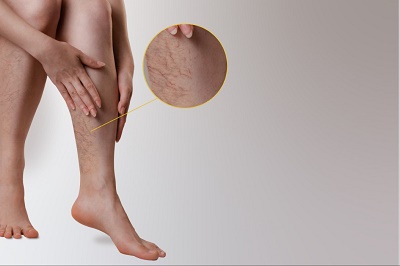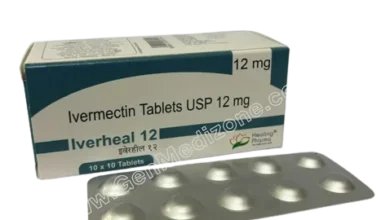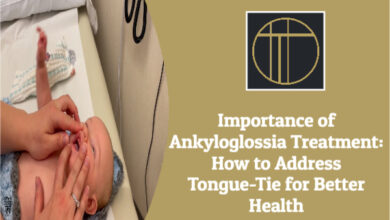What is a Vein Doctor Called?

When it comes to vascular health, many people find themselves asking, “What is a vein doctor called?” Understanding the answer can help you seek the right medical care for conditions related to veins. In this article, we’ll explore the various titles used for specialists in this field, their roles, and the advantages of consulting them.
Understanding Vascular Health
Vascular health refers to the condition of your blood vessels, which include arteries, veins, and capillaries. Healthy veins are crucial for efficient blood circulation, transporting blood back to the heart after it has delivered oxygen and nutrients to the body’s tissues. However, various conditions can affect the veins, leading to issues such as varicose veins, deep vein thrombosis (DVT), and chronic venous insufficiency.
What Is a Vein Doctor?
A vein doctor is typically known as a vascular surgeon or a phlebologist. Each of these specialists has a unique focus within the realm of vascular health.
Vascular Surgeon
A vascular surgeon specializes in the diagnosis and surgical treatment of conditions affecting the vascular system. They perform operations to repair or remove diseased veins and arteries. For example, if someone suffers from severe varicose veins or arterial blockages, a vascular surgeon can provide surgical options to alleviate these conditions.
Phlebologist
A phlebologist, on the other hand, focuses specifically on venous disorders. This type of doctor is trained to diagnose and treat various conditions affecting the veins, often using non-surgical methods. Common treatments provided by phlebologists include sclerotherapy, endovenous laser therapy (EVLT), and radiofrequency ablation.
Why See a Vein Doctor?
Seeing a vein doctor can have numerous advantages, especially if you experience symptoms related to venous issues. Early diagnosis and treatment can prevent complications and improve your quality of life. Here are some reasons why you should consider consulting a vein specialist:
Early Diagnosis
One of the most significant advantages of seeing a vein doctor is the potential for early diagnosis. Symptoms such as swelling, pain, or discoloration in the legs should not be ignored. A vein specialist can perform diagnostic tests, like ultrasound examinations, to identify issues early on. Early intervention often leads to more effective treatment and better outcomes.
Specialized Knowledge
Vein doctors possess specialized knowledge and skills that general practitioners may not have. They stay updated on the latest treatments and technologies in the field. Their expertise allows them to offer tailored treatment plans based on your specific condition.
Minimally Invasive Treatments
Many vein doctors, especially phlebologists, offer minimally invasive treatment options. Procedures such as sclerotherapy and endovenous laser therapy often require only local anesthesia and result in quicker recovery times compared to traditional surgical methods. This means you can return to your daily activities much sooner.
What Conditions Do Vein Doctors Treat?
Vein doctors treat a variety of conditions that affect the veins. Understanding these conditions can help you recognize when it’s time to seek help.
Varicose Veins
Varicose veins are swollen, twisted veins that often appear blue or dark purple. They can cause discomfort, heaviness, and even pain. A vein doctor can assess the severity of your varicose veins and recommend treatments that can reduce their appearance and alleviate discomfort.
Chronic Venous Insufficiency
Chronic venous insufficiency (CVI) occurs when veins struggle to return blood to the heart. Symptoms include swelling, skin changes, and even ulcers. A vein doctor can help manage CVI through lifestyle changes, compression therapy, or more advanced treatments.
Deep Vein Thrombosis (DVT)
DVT is a serious condition that occurs when a blood clot forms in a deep vein, usually in the legs. It can lead to severe complications, including pulmonary embolism. If you experience symptoms like swelling and pain in one leg, it’s crucial to consult a vein specialist immediately.
What to Expect During Your Appointment
When you schedule an appointment with a vein doctor, knowing what to expect can ease any anxiety you may have.
Initial Consultation
During your initial consultation, the doctor will review your medical history and discuss your symptoms. Be prepared to provide detailed information about any discomfort you’re experiencing.
Diagnostic Testing
The doctor may recommend diagnostic testing, such as a Doppler ultrasound. This non-invasive test helps visualize blood flow in your veins and can reveal issues like clots or valve problems.
Treatment Plan
Based on the diagnosis, your vein doctor will develop a treatment plan tailored to your needs. This may include lifestyle changes, medication, or specific procedures. They will explain the risks and benefits of each option, allowing you to make an informed decision.
Conclusion
So, what is a vein doctor called? Whether you consult a vascular surgeon or a phlebologist, seeking the expertise of a vein specialist can significantly enhance your vascular health. With their specialized knowledge, they can diagnose and treat a wide range of venous conditions, helping you regain comfort and quality of life.
If you’re experiencing any symptoms related to your veins, don’t hesitate to reach out to a vein doctor. Early intervention can make a world of difference, and taking that first step toward better health is always an advantage.




